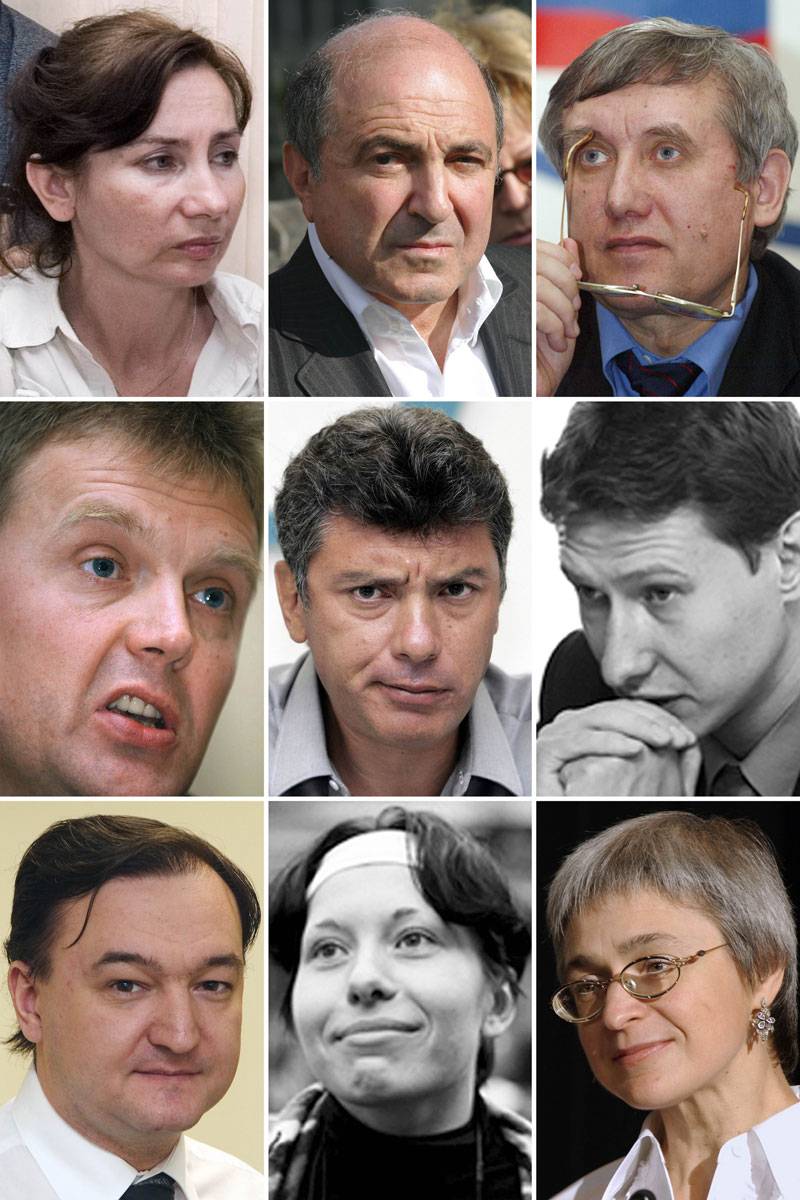Kathrin Hille and Courtney Weaver - There were still thick crusts of dirty snow piled up on the edges of the pavement outside Krasnopresnenskaya, a Metro station in central Moscow, on Tuesday. Beside this reminder of a long winter stood four young men and women holding bright green balloons. ‘Spring is coming!’ said one of them, while handing out leaflets to passers-by.
Three years after 100,000 took part in opposition rallies across Russia, the movement is splintered: some leaders are jailed, others are in exile while several have switched sides. A constant drumbeat of propaganda has portrayed the crisis as a fight for Russia’s survival.
Following the collapse of the rouble by more than 40 per cent against the dollar over the past year, consumer prices are soaring. Boris Nemtsov, a veteran liberal opposition politician who briefly served as deputy prime minister under Boris Yeltsin in the 1990s, says soaring inflation topped the agenda when he met with residents of Yaroslavl. ‘This is what we need to make people aware of: the crisis, that’s Putin.’
But nobody is under any illusions that grumbling over Russia’s economic woes will bring about swift political change. ‘It hasn’t got to the point yet where economic hardship can have an impact on mass opinion,’ says Dmitry Gudkov, an opposition member of parliament.
Making new allies
Not everyone is as cynical. Mr Navalny’s campaigners realise that while his focus on social media allowed him to build support despite being barred from state television, it also prevented him from reaching Russians over a certain age and outside the capital that do not use those media.
Mr Navalny has also started to co-operate with Mikhail Khodorkovsky, the former oligarch who moved to Switzerland when Mr Putin released him from prison in late 2013 after 10 years behind bars, and who has since proposed himself as an alternative president.
The opposition will eventually face the question of how a change of power can be brought about. Opposition politicians reject the possibility of a revolution, but some opponents of Mr Putin hope for a palace coup, while others ponder about how the president could be persuaded to step down.
Other politicians are discussing the matter in more realistic terms. ‘Putin’s rating will not stay at above 80 per cent forever. It will start coming down, very gradually,’ says Mr Nemtsov. ‘And once it does, the fear will diminish, too, and at some point some big business will start supporting and financing us.’ Such scenarios are long in the future. They anticipate Mr Putin serving another six-year term after the present one ends in 2018. At that point the constitution, which allows no more than two consecutive presidential terms, would force him to step aside. Says Mr Nemtsov: ‘We are talking about 2024.’
Young, square-jawed and chiselled, Dmitry Gudkov rose to prominence on the back of the 2011-12 Bolotnaya Square protests and the reputation of his father, Gennady Gudkov, a well-respected and long-serving Duma deputy who was kicked out of parliament in 2012 after leading the Moscow street demonstrations. The younger Mr Gudkov was elected as a Duma deputy in 2011 and is now one of the lone opposition voices left in the 450-seat parliament after his colleague, Ilya Ponomarev, was forced to flee under pressure from Russian prosecutors last year.
Since then, Ms Prokhorova, 58, has become a more visible face of the opposition. She now hosts her own radio and television programmes and has been one of the loudest critics of Russia’s actions in Ukraine, stepping down as chairwoman of her brother’s party, Civil Platform, after coming out against the annexation of Crimea.
Galina Timchenko
The former editor of Lenta.ru, Russia’s most widely read independent news site, Galina Timchenko has now become one of the leading Russian opposition voices abroad. Ms Timchenko, 52, had been in charge of Lenta’s editorial content since the site was founded in 1999, and under her direction the portal flourished into one of the most popular and profitable independent news sites with 20m readers at the end of 2013. In early 2014, the site’s billionaire owner Alexander Mamut suddenly announced that Ms Timchenko had been fired, giving no reason for the dismissal.
It was the latest example of a new and more intensified crackdown on Russian media. But last autumn Ms Timchenko gathered some of Lenta’s former writers and launched a new Latvia-based internet portal called Meduza.
One of the main leaders of the 2011-12 Bolotnaya Square protests, Sergei Udaltsov was put under house arrest in February 2013 on claims that he incited a riot between protesters and police in May 2012. While human rights organisations have decried the case as politically motivated, a court handed Mr Udaltsov and a fellow opposition protester four-and-a-half year prison sentences for ‘inciting public disorder’ last July. He is now in a Moscow holding cell waiting to appeal against his conviction.
The grandson of a Bolshevik and an avowed leftist, Mr Udaltsov, 38, is one of several members of the anti-Putin opposition who supported Russia’s annexation of Crimea. In a blog post last year, Mr Udaltsov wrote: ‘As a patriot, I believe that the destruction of the USSR was a great mistake and crime, and thus see the annexation of Crimea as a small but important step towards the revival of the Soviet Union.’–The Financial Times
MOSCOW: This combination picture shows Russian Human Rights activist Natalia Estemirova, Russian businessman Boris Berezovsky, leader of the Liberal Russia party Sergei Yushenkov, former Russian intelligence agent Alexander Litvinenko, Russian opposition leader Boris Nemtsov, Russian human-rights lawyer Stanislav Markelov, Russian lawyer Sergei Magnitsky, Reporter Anastasiya Baburova and Russian journalist Anna Politkovskaya. The list of Kremlin opponents who have been killed or died in suspicious circumstances in recent years got longer with the slaying of prominent opposition leader Boris Nemtsov.–AFP






